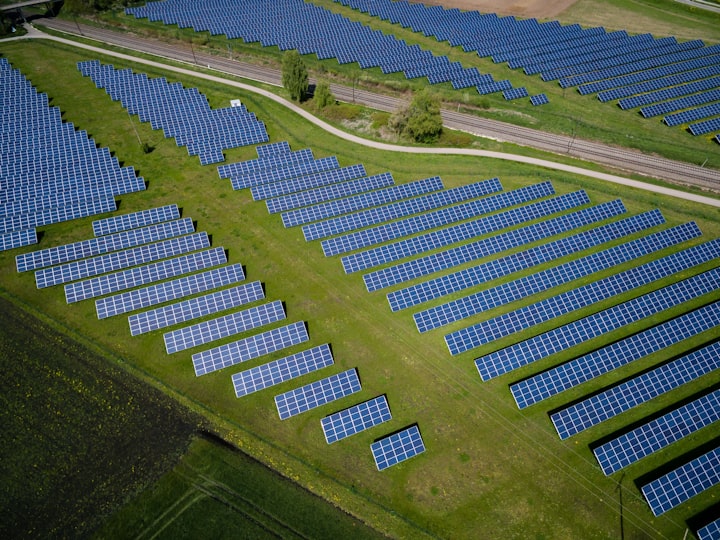Are renewables aggravating the energy crisis?
Renewable energy is the answer to the world's addiction to burning fossil fuels. But is the aggressive transition to clean energy leaving us exposed to black swan events?

There is certainly reason to celebrate the unprecedented rollout of clean energy. Every passing year becomes a record breaker for the adoption of renewables.
Yet, instead of seeing a gradual decrease in energy prices as we diversify and clean our grids, we are seeing the exact opposite: large price volatility trending upwards.
In this article, we explore how a desperate scramble for green energy adoption without a clear transition strategy has left most nations (especially those in Europe) with a potentially bigger existential problem.
Natural gas supplies in shock
The conflict in Ukraine together with a general apathy for new natural gas projects has led to a global fossil fuel supply shock, particularly for Europe.
Understandably, we are observing a price hike, but no expected to see the steepest rise in decades due to a European overreliance on Russian gas.
This is a problem that has been in the making for decades, as we're about to find out.
Resistance to nuclear energy
The first long-standing issue (at least in Europe) leading to this crisis is the refusal of expanding nuclear energy capabilities, which has the potential to decarbonise energy production at scale.
However, safety concerns following nuclear disasters like Chernobyl (1987) and Fukushima (2010) have dissuaded the European nations to carry on expanding.
Even France, whose technocratic governments have always taken pride in its nuclear capabilities has the same nuclear energy output in 2022 as it had in 1995.
This is not the case in countries like China which has kept increasing its nuclear capabilities as its arguably the only means it can decarbonise its colossal population by 2050.
The green energy revolution
So with nuclear in decline in Europe, the accelerated adoption of renewable energy like solar and wind has taken priority in order to decarbonise the economy by 2050.
This has been given a boost by the technological improvements that have dramatically brought down the costs of installing both solar and wind power generation.
For example in Andalucia (Spain), the local government is subsidizing about 50% of the costs of household solar panel installations using EU funding.
But renewable energy is unreliable
But renewables like wind, solar and even hydro have the inherent problem of relying on weather patterns, which are becoming increasingly erratic due to climate change.
What happens when the sun doesn’t shine and the wind doesn’t blow as it did in Northwestern Europe last year (2021)?
Since the beginning of national energy grids, its operators have been delicately balancing energy generation and demand, but this has gotten a lot more difficult with unreliable renewables.
When renewables falter, energy has to come from somewhere else.
The blessing and curse of fossil fuels
Currently, the only source of power that is versatile enough to be turned ON and OFF at a moment’s notice are fossil fuels, particularly coal which can be easily stockpiled for emergency use.
With Russia threatening to cut natural gas supplies to Europe, coal is making a sudden comeback in countries like the Netherlands which have temporarily removed limits on coal power until 2024.
So despite grid operators having a secret fetish for fossil fuels, nothing opaques their ultimate fantasy of having renewables supplemented with unlimited energy storage.
Unfortunately, the sluggish development in battery technology has crushed this fantasy, at least for now.
Battery development
Lithium-ion batteries are expensive and limited by the scarcity of their rare metal components, while interesting propositions like commercial sand batteries are still at the prototype stage.
In hydro stations, energy can be stored in the form of gravitational potential energy by pumping water back to the reservoir using excess energy, but this is still not standard practice.
So until the energy storage dilemma is not solved, grid operators will have to keep burning fossil fuels to meet demand as a nation simply cannot function without a reliable energy supply.
Conclusion
It is clear that the decoupling of renewable energy generation and energy storage capabilities created a system (at least in Europe) vulnerable to price shocks coming from an unshakeable fossil fuel necessity.
At the same time, temporarily relying on coal is only going to aggravate issues, especially considering that the EU ETS (Emissions Trading Scheme) will force European nations to pay a price for not achieving their carbon reduction goals
Does this smell like a crisis? It certainly does.





Comments
There are no comments for this story
Be the first to respond and start the conversation.